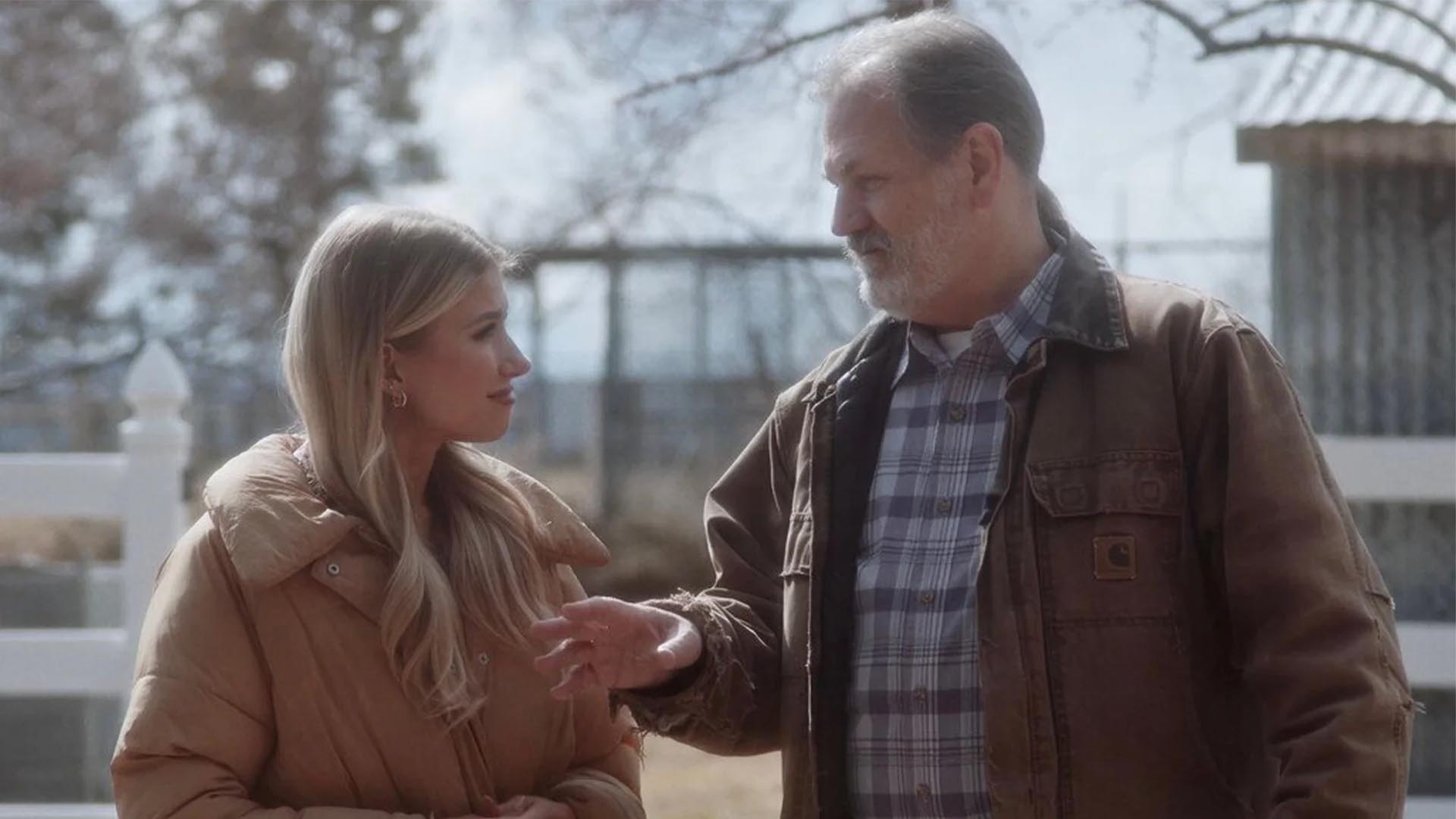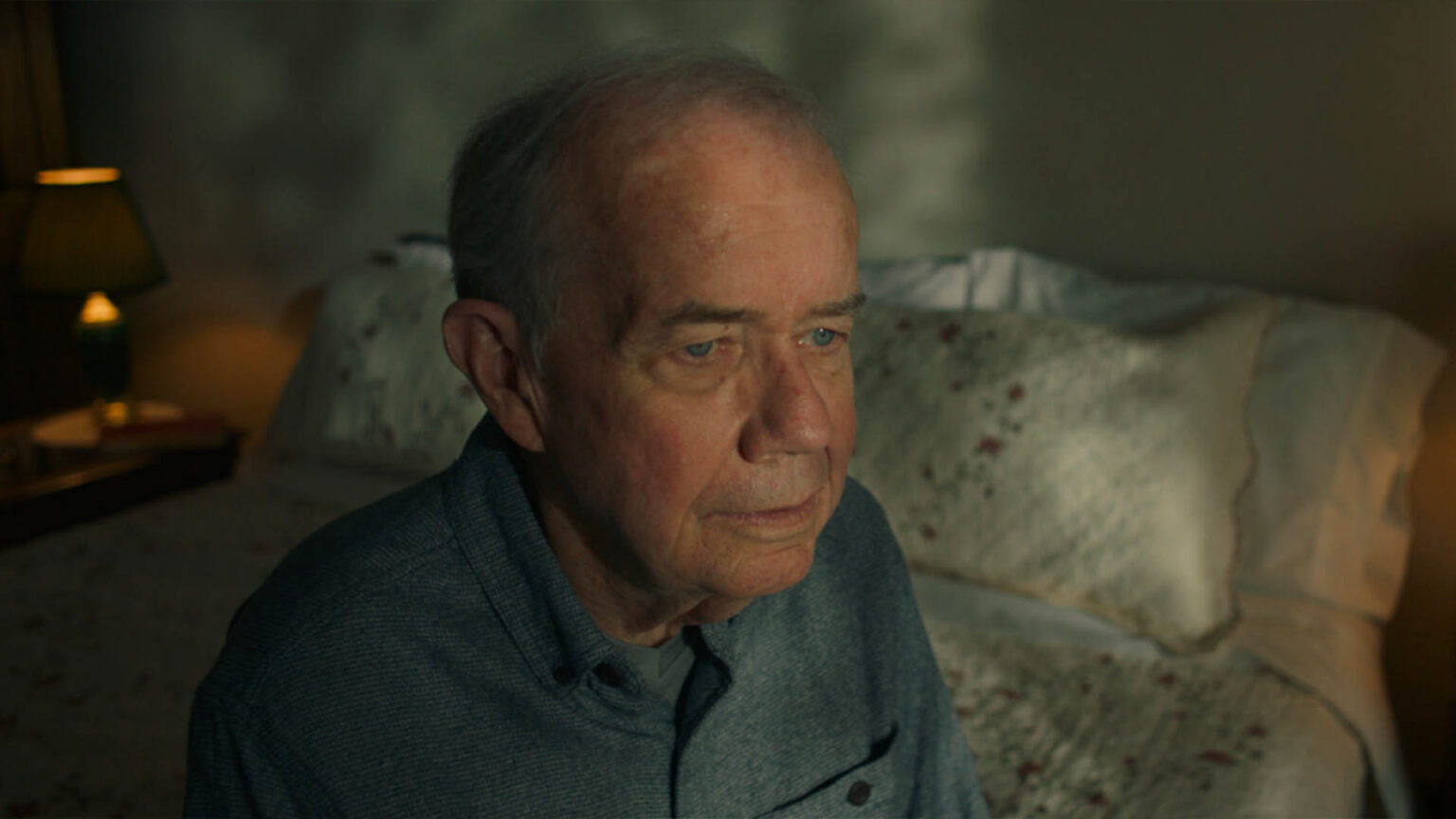Drama
Where The Winds Die


Drama
Chicken Coop

In a recent interview at the Desertscape International Film Festival, Joseph DeGoyler, the writer and director of “Chicken Coop” reflects on indie filmmaking, emphasizing creativity, and the pursuit of storytelling.
DeGoyler’s vision for “Chicken Coop” stemmed from a desire to challenge himself creatively, aiming for a minimalist yet impactful storyline. As he puts it, “I wanted to write my version of a Hallmark movie, maybe make it an anti-Hallmark movie… something that I could shoot on like an iPhone at my parents’ house.” This approach highlights the essence of indie filmmaking—embracing limitations to foster innovation.
His filmmaking journey was marked by perseverance and adaptability. DeGoyler’s candid remarks on the evolution of the project echo the iterative nature of creative endeavors. “After many, many months, many, many drafts… we decided to go a little bit softer to make it a little bit bigger scale,” he shares. This willingness to pivot and refine demonstrates the resilience required in the filmmaking process.
Navigating the film festival circuit presents its own set of challenges, yet DeGoyler’s pragmatic approach underscores the importance of seizing opportunities close to home. While aiming for prestigious festivals, he acknowledges the significance of local platforms like Desertscape and Kanab Film Festival. “For me, it’s just kind of like, after the big five, it’s really just what region do you want to hang out in?” he explains. This grassroots approach not only fosters community engagement but also amplifies exposure for indie projects.
Central to “Chicken Coop’s” success is the careful curation of its ensemble cast—a process characterized by scouting talent at film festivals and prioritizing passion for the project. DeGoyler’s emphasis on actors’ investment in the script underscores the collaborative spirit essential to indie filmmaking. “It was important to me that they were actually excited about the project itself,” he notes, highlighting the symbiotic relationship between script and performance.
Beyond filmmaking, DeGoyler’s diverse creative pursuits, including podcasting and video production, offer valuable insights into the interconnectedness of artistic endeavors. While acknowledging the overlap between mediums, he stresses the primacy of filmmaking as his “first love.” This multipronged approach not only fuels creativity but also cultivates a dynamic skill set essential for storytelling in the digital age.
For aspiring filmmakers, DeGoyler draws parallels between writing and exercise. “The most important thing… is just being consistent with it. So whatever you’re doing, be consistent with it and don’t be precious with it,” he advises. This ethos of continuous growth and productivity echoes throughout his creative journey.
Joseph DeGoyler’s narrative embodies the spirit of indie filmmaking—forging ahead with passion, adaptability, and a relentless pursuit of storytelling excellence.
Drama
Breakup Season

“Breakup Season” kicked off with their World Premiere at the Desertscape International Film Festival in St. George Utah. Written and Directed by the H. Nelson Tracey, “Breakup Season” encapsulates the essence of human connection amidst the backdrop of a small town. With a stellar cast including Chandler Riggs (Walking Dead) as Ben and Samantha Isler (Captain Fantastic) as Cassie, the drama brings to life the intricacies of relationships and the resilience of the human spirit even in less than ideal circumstances.
“I’ve always wanted to make a movie,” shares Tracey. “Le Grand Oregon stole my heart, and from there, the screenplay took shape. It’s been a journey of love and dedication.”
Interviewing the talented Chandler Riggs, we delve into the complexities of portraying a breakup on screen. Despite the challenging subject matter, Riggs reflects on the friendships among the cast, making the experience both fulfilling and seamless. “The camaraderie among the cast was just so great. It really made our jobs very easy to just be there for each other every single day and support each other in and out. It was great.”
Samantha Isler, who portrays Cassie, highlights moments that unfolded off-screen during production. “It’s a small, small place. And so we got really familiar with all of the local establishments. It was so much fun. I mean, we really just became such a family and we have so many memories on and off.”
An enthusiastic Tracey shares the significance of the film’s premiere. “None of these people have seen this film. So it’s a special occasion. It is the very first time it is playing in a movie theater. For a long time, it lived in my head and then it lived on my computer hard drive. And now, it lives in a movie theater.”
As the film kicks off its festival run, Tracey assures eager audiences that this is just the beginning and invites audiences to follow their journey. “We’re on Instagram at @BreakupSeasonMovie.’ I think that’s honestly the easiest catch-all for updates and we’ll keep you updated.”
Drama
Love Grandma

“Love, Grandma,” is a deeply personal short film that captures the essence of Matt Spear’s experience with his grandmother in hospice care.
“This short is basically exactly how I remember the day going” said director/writer Matt Spear. “It was my first time around death this close,” emphasizing the profound impact of witnessing his grandmother’s final moments. He vividly recounts the surreal feeling of seeing her lifeless body juxtaposed against the world outside, seemingly oblivious to the tragedy within.
As the story progresses, Spear delves into the duality of the experience—moments of grief intertwined with the mundane aspects of life that persist. The hospice bed, once a focal point of the living room, disappears within an afternoon. “Suddenly it was as if nothing had happened. Her chair sat there like it had my whole childhood,” he muses, capturing the bizarre sensation of life moving forward despite the profound loss.
The production of “Love, Grandma” becomes an extension of Spear’s personal journey. Collaborating with a team of talented individuals, Spear sees his vision come to life on set. “Having an idea you’ve developed and have had close to you, especially such a personal one, and then to connect with friends and find yourself on set seeing that vision come to life and collaborating with other incredibly talented people to elevate that idea is incredibly rewarding,” he shares.
Making a movie is not an easy thing to do. Spear reflects on the difficulties of getting started and the search for the perfect location, an essential element in conveying the story’s emotional depth. “Location is such an important part in telling a story, and I’m glad we didn’t settle,” he remarks, underscoring the dedication to authenticity in the filmmaking process.
When asked about potential changes if given the chance to go back, Spear acknowledges the perpetual desire for more time in pre-production but expresses contentment with the final result. “I am really happy with what we were able to come up with and happy with the final result. I think it stays true to my experience which was really important to me going into it,” he reflects.
For aspiring filmmakers, Spear offers practical advice on entering the production space, advocating for aspiring individuals to connect with local production companies and express interest in production assisting. He emphasizes the value of being a Production Assistant (PA), a role that provides a gateway to the multifaceted world of filmmaking.
“Love, Grandma” invites audiences to reflect on the delicate balance between life and death, the surreal moments that linger, and the resilience of the human spirit in the face of loss. To follow Matt Spear and discover more about his future projects, he encourages audiences to connect with him on Instagram @mspear33 or visit his website mattspear.me.







